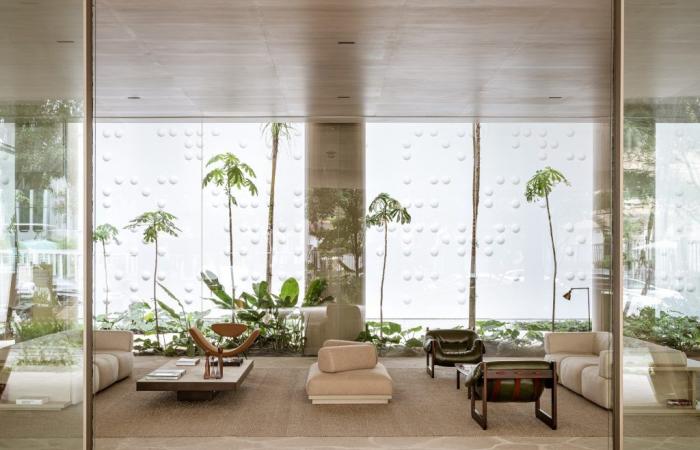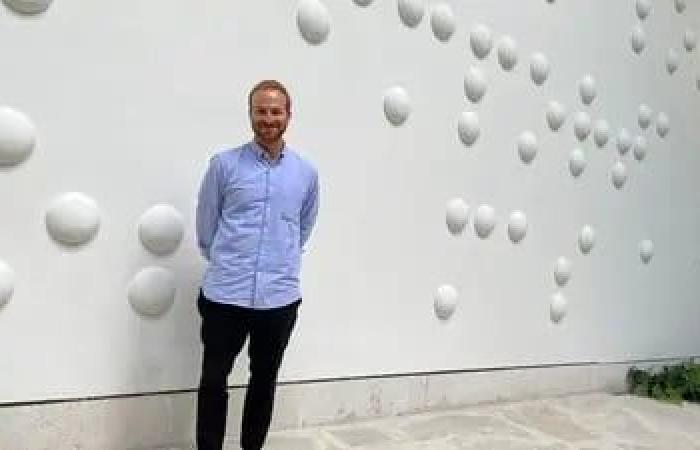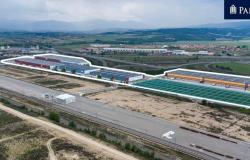Bloomberg Line — The luxury hotel segment in the city of Sao Paulo remains one of the hottest in the tourism and wellness industrywith the development of national and global group projects beyond the regions that traditionally host these units.
One of the new hotels is Pulsethe new luxury hotel brand Estancorp Groupbetter known for the Estanplaza chain.
see more: Elite clubs in Brazil charge more than US$140,000 for new members
The first unit of the brand, in the production phase soft openingrepresents some of the trends in the sector, such as the expansion of high-end developments in the Rebouças Avenue area, in the western area of São Paulo, the integration of the hotel with a residential building and leisure services in the same complex.
In an interview granted to Bloomberg Linethe CEO of Estancorp, Otávio Surianistated that the group founded by his father, Lucio Suriani, is committed to the growing demand for accommodation that combines cultural immersion with quality services and that he believes that there is a potential market in this segment.
“São Paulo has a significant shortage of luxury hotel rooms compared to capitals such as Buenos Aires, Lima and Bogotá. The Pulso, the new Fasano, the W and the Faena will meet the demand of this market. We will not have problems with excess supply, occupancy or prices,” stated the CEO.
He was referring to Fasano São Paulo Itaimopen in May 2023, and the arrival in Brazil of the brands Wfrom the American network Marriottin Vila Olímpia, and Taskof the Accor group, on Rebouças Avenue, near the Faria Lima financial hub.
The supply of luxury hotels in the region has grown in recent years with the arrival of rosewoodIn the complex Matarazzo City, near Paulista Avenue; and there are those already established Fasano and Emiliano.
This is a region that has been expanding as a result of the city’s Master Plan, which grants incentives to developments in the vicinity of the public transport center, as is the case of Rebouças.
The CEO highlighted the growing focus of the real estate development sector in the Rebouças area, in the sections closest to Faria Lima, which is located in the vicinity of the Pinheiros region.
see more: The ‘Dubai of Brazil’, where millionaires are investing in expensive properties
“Faria Lima [en el lado de Itaim] He got saturated and came here. In Vila Olímpia and Itaim there is less land available. In Pinheiros, due to its proximity to large shopping and service centers, there is a greater perception of the value of the asset. For example, Pinheiros is one of the largest gastronomic centers in the city and there is also the Iguatemi shopping center next door,” said the manager.
The developments increase the supply of rooms for the executive and high-income public.
“The profile of luxury hotels changed after the pandemic. The contribution of corporate travelers fell by 10% in São Paulo. Instead, travelers coming for events, concerts or tourism and gastronomy have grown well above that 10%, offsetting the drop in corporate travelers”Suriani said.
“We see a very strong and consolidated trend in the global hospitality industry, such as the traveler’s desire to know the flavors, the colors, the art, the music, to connect with the city and return home having gotten to know a little more about the destination they visited. . Pulse offers this terroir local”.
The flagship of the Estancorp holding company in the sector continues to be the chain Estanplaza Hotels, which has seven units in prime areas of the capital of São Paulo, from the Funchal Faria Lima, in front of the JK Iguatemi shopping center, to the Gran Estanplaza Berrini. The Pulso brand officially opened in April in Pinheiros near Avenida Rebouças and Avenida Faria Lima.
Lobby of the Hotel Pulso in the Rebouças area: access to the street without bars or walls, in a project that is committed to integration with the city (Photographer: Sérgio Ripardo/Bloomberg Línea)(Sérgio Ripardo/Bloomberg Line)
Bet on healing
The hotel has cultural references in its space, such as a 30-meter panel of the São Paulo poet, essayist and artist Nuno Ramos in the lobby garden.
The hotel’s main restaurant is the traditional Bistrô Charlô. Reference of São Paulo gastronomy, Carlos Whately, known as Charlô, also runs the second unit of Cha Cha, a mix of cafeteria, boulangerie, grill and emporium. Architect Arthur Casas, one of the most prominent names in Brazilian design, designed the building and the interiors of all the hotel spaces, including the suites.
With 52 apartments of 32 square meters and five suites of 64 square metersPulso has a spa from L’Occitane au Brésil, the French beauty products brand.
Bar Sarau has a drinks menu prepared by award-winning bartender Gabriel Santana, with a musical program. Architect and critic Guilherme Wisnik curated more than 300 items from the collection for the suites and social areas, and Italian brand Technogym is responsible for the gym equipment.
“We have selected the best of São Paulo. We explained the concept of the hotel to its partners, who were attracted, identified and embraced the idea of an open luxury hotel, integrated into the city, alive and vibrant,” said Suriani.
Pulso was certified by the Preferred Hotel Group, which brings together luxury hotels from around the world. After inspection, the international association included it among the high-end accommodation options in Brazil, along with the Hotel Unique, the Yoo2 Rio de Janeiro by Intercity and the Fera Palace Hotel, in Salvador.
see more: Brazilian Pacaembu stadium is a real estate asset far beyond football, according to CEO
Next steps
He Estancorp Group plans to open a second Pulso unit in São Paulo, while still studying how to replicate the concept in other cities, like groups like Fasano and Emiliano. It will be a project greenfieldthat is, started from scratch.
“We should have another asset in São Paulo in the next few years. We already have a project. It will be called Pulse JK. Outside of São Paulo, we know that the project fits in some capitals and specific locations in the country, including beach destinations,” said the CEO. “The biggest challenge is finding the right place to implement our concept.”
The Suriani family would be following in the footsteps of players like Fasano, which has branches in Rio de Janeiro, Bahia and Minas Gerais, as well as abroad, and Emiliano, who replicated the operation in Copacabana, in Rio de Janeiro.
At the moment, Pulso in São Paulo already has corporate agreements signed with companies in the Rebouças and Faria Lima areas, such as managers, banks and companies, for occupation.
Otavio Suriani, CEO of the Estancorp Group, before a 30-meter panel by Nuno Ramos in the lobby of the new Pulso hotel: “Mácula” (2023) is inspired by a work of the same name by Nuno created for the XXII International Biennial of São Paulo.(Photographer: Sérgio Ripardo/Bloomberg Línea)
(Sérgio Ripardo/Bloomberg Line)
New sources of income
The Pulso portfolio will expand the Estancorp Group’s income, according to the CEO. Conceived before the pandemic (2019), the new hotel project took 40 months to become a reality.
“In terms of income, Pulso should increase the management companies’ recurring income generation by between 15% and 20%. It has important weight. It is the first adventure of this new brand, which we hope will grow as we open new units, which will give it a greater weight in income,” says Suriani.
see more: Better late than never: the push for afrotourism in Brazil
He says he sees Pulso as a synthesis of the group’s work over the last forty years in real estate development that adds services such as hotels.
The hotel is part of the Praça Henrique Monteiro urbanization. Pulso’s architectural project provides for access without walls or railings.
“The property acquires more value [con la integración]. Residents want convenience and convenience, and the hotel gains by being part of a large-scale development. The integration of uses and service synergies improve the perception of value for everyone,” says Suriani.
In addition to the Funchal Faria Lima, in front of the JK Iguatemi Shopping Center, and the Gran Estanplaza Berrini, the Estanplaza chain also has units in the areas of Avenida Paulista, Parque Ibirapuera, Berrini, Nações Unidas and Chácara Santo Antônio (southern area), with Daily rates of between 1,500 reais (US$277) and 2,500 reais (US$462). At Pulso, these prices range between 2,300 reais (US$425) and 3,200 reais (US$591).
It may interest you
Citizens of 9 LatAm countries, among residents who most obtain Spanish nationality
Projects in LatAm are more efficient, but they lack resources: Marcelo Claure







